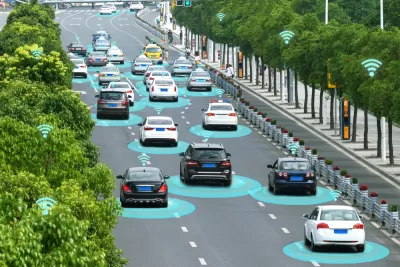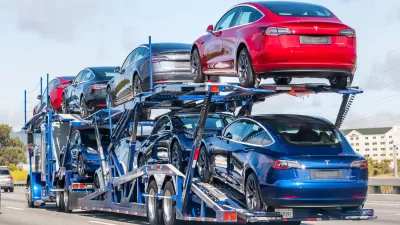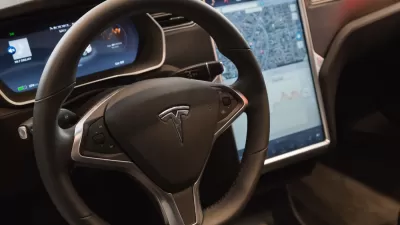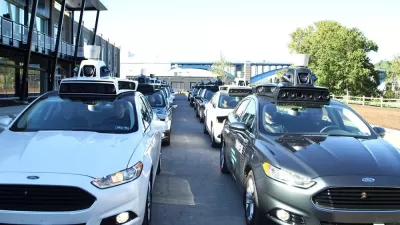A new book makes the case that the promises of the transportation technology industry will fall short of the needs of cities and the planet.

Muizz Akhtar interviews Paris Marx, author of Road to Nowhere: What Silicon Valley Gets Wrong about the Future of Transportation, about the future of transportation in the United States.
The interview ranges from the necessity of owning a car in the United States, the limitations of automobile technology in solving transportation, urban planning, and mobility problems, and the politics of emerging transportation technology. A few choice quotes delivered by Marx in the interview:
We’re kind of stuck in this bind, where we’re dependent on these automobiles, where the cost of using them is increasing, where the number of deaths on the road continues to rise every year. If we do a mass transition to electric vehicles, as it’s being pushed by these companies, and also by the governments, I think that we’re going to find that that doesn’t solve the climate problem of the transportation system to the degree that we’re being sold right now.
And
There’s this move into the city — there’s this desire to go beyond what’s just happening on your computer and to integrate the internet itself into so many other parts of the world. The idea is that this will make things better, this will improve things. But I think, especially now more than a decade on from that, it’s time for a reckoning of reassessment and to recenter ourselves, especially post-pandemic. How do we think about technology in the tech industry now? And how do we ensure we don’t get caught up in these promises, again, in a really uncritical way?
More at the source article below.
FULL STORY: Silicon Valley is wrong about the future of transportation

Trump Administration Could Effectively End Housing Voucher Program
Federal officials are eyeing major cuts to the Section 8 program that helps millions of low-income households pay rent.

Planetizen Federal Action Tracker
A weekly monitor of how Trump’s orders and actions are impacting planners and planning in America.

Ken Jennings Launches Transit Web Series
The Jeopardy champ wants you to ride public transit.

New Mexico Aging Department Commits to Helping Seniors Age ‘In Place’ and ‘Autonomously’ in New Draft Plan
As New Mexico’s population of seniors continues to grow, the state’s aging department is proposing expanded initiatives to help seniors maintain their autonomy while also supporting family caregivers.

USDOT Waters Down Self-Driving Car Regulations
The agency is reducing reporting requirements for autonomous vehicles and cars with self-driving features, prompting concern among safety advocates who say transparency is essential to the safe deployment of AV technology.

‘Minnesota Nice’ Isn’t so Nice When You Can’t Find a Place to Live
The Economic Development and Housing Challenge Program can help address the scourge of homelessness among Indigenous people.
Urban Design for Planners 1: Software Tools
This six-course series explores essential urban design concepts using open source software and equips planners with the tools they need to participate fully in the urban design process.
Planning for Universal Design
Learn the tools for implementing Universal Design in planning regulations.
Heyer Gruel & Associates PA
Ada County Highway District
Institute for Housing and Urban Development Studies (IHS)
City of Grandview
Harvard GSD Executive Education
Toledo-Lucas County Plan Commissions
Salt Lake City
NYU Wagner Graduate School of Public Service





























